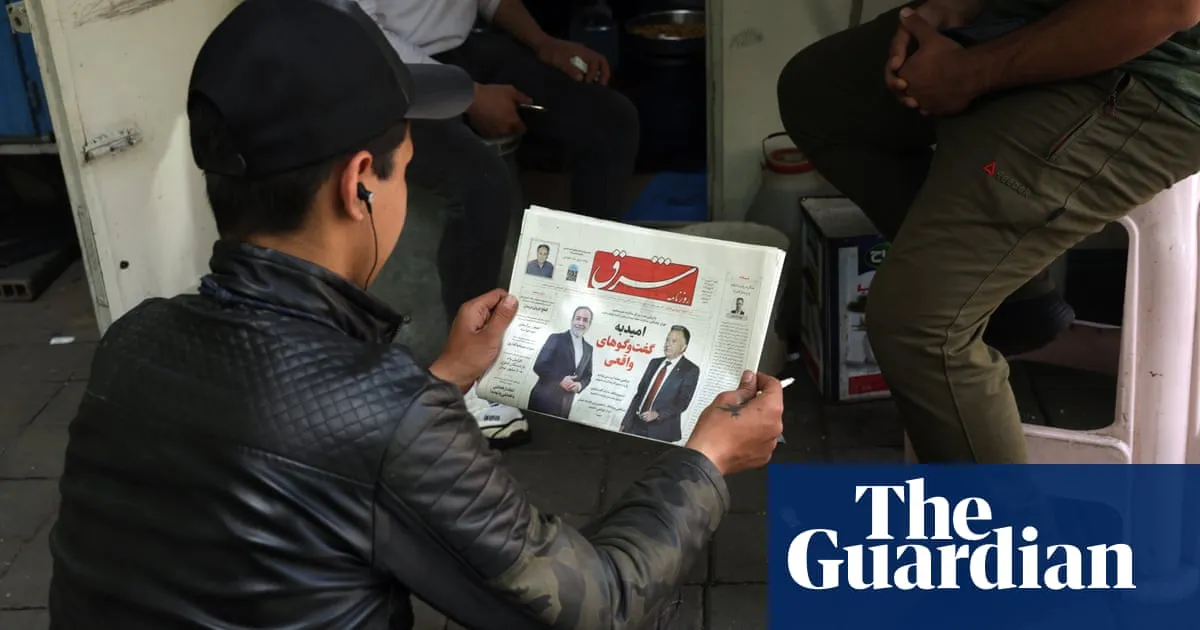
Russia is poised to play a crucial role in shaping the future of Iran’s nuclear program. Moscow is being considered not only as a possible destination for Iran’s stockpile of highly enriched uranium but also as a potential arbiter in instances of deal breaches. This development comes in the wake of heightened tensions following former President Donald Trump's decision to abandon the 2015 nuclear pact between Tehran and world powers in 2018. Trump has since threatened military action against Iran if a new deal is not established swiftly to prevent the development of a nuclear weapon.
Recent indirect negotiations between the United States and Iran in Rome, mediated by Oman, showed promising signs of progress, according to US officials. Over four hours, discussions moved forward on critical issues, with additional technical talks scheduled in Geneva this week. A high-level diplomatic meeting is also set to take place next weekend in Oman. Trump's special envoy, Steve Witkoff, aims to finalize an agreement within 60 days. However, this timeline may face challenges from Iran’s foreign minister, Abbas Araghchi, who emphasizes the significant distrust and complex technicalities involved, making a swift agreement seem unlikely.
Two primary obstacles remain in the negotiations: the fate of Iran’s stockpile of highly enriched uranium and the need for external guarantees. Iran insists on either storing its uranium stockpiles domestically or finding a third-party solution, while the US demands the destruction or transfer of these materials, potentially to Russia. Furthermore, Iran seeks assurances that if the US breaches the agreement regarding the lifting of economic sanctions, there will be consequences for Washington. The Iranian leadership has expressed concerns over the US's intention regarding their nuclear program, particularly after Witkoff’s mixed messaging prior to the Rome talks.
From Iran's perspective, a secure agreement would involve a treaty ratified by the US Congress. However, Araghchi was informed that the feasibility of such an agreement remains uncertain, given the strong pro-Israeli sentiment in Congress. An alternative proposal involves the US covering Tehran’s potential losses in the event of a deal's collapse, though enforcing such a measure without a treaty presents challenges. Another significant consideration is empowering Russia to return the highly enriched uranium stockpile to Iran if the US breaches the deal, thus preventing Iran from being penalized for non-compliance.
This potential arrangement could position Russia as a pivotal player in the evolving US-Iran relationship, possibly sidelining European nations like Germany, France, and the UK, who are currently guarantors of the 2015 agreement. Both Iran and the US appear unwilling to rely heavily on the UN for future oversight. The Rome talks were strategically important; if negotiations faltered, Italian Prime Minister Georgia Meloni could leverage her favorable relations with Trump to facilitate a rescue operation. A proposed meeting between Araghchi and US Vice President JD Vance was deemed premature, highlighting the delicate nature of the discussions.
The pressure is mounting on Witkoff and Trump to achieve tangible outcomes in one of the three concurrent negotiations they are engaged in—namely Iran, Hamas-Israel, and Russia-Ukraine. A source remarked, “Regardless of perceptions, Iran is a rational actor and is more likely to strike a deal.” Furthermore, Iran's negotiating stance was bolstered by a recent visit from the Saudi defense minister to Tehran, signaling solidarity against any potential US-Israeli military actions targeting Iran’s nuclear facilities.
The Omani foreign ministry has articulated the goal of the ongoing talks as a pursuit for “a fair, sustainable, and binding agreement… to ensure that Iran is completely free of nuclear weapons and sanctions, while preserving its right to develop nuclear energy for peaceful purposes.” As discussions continue, the role of Russia in this intricate geopolitical landscape may prove to be a defining factor in the future of Iran’s nuclear ambitions and its relations with the West.